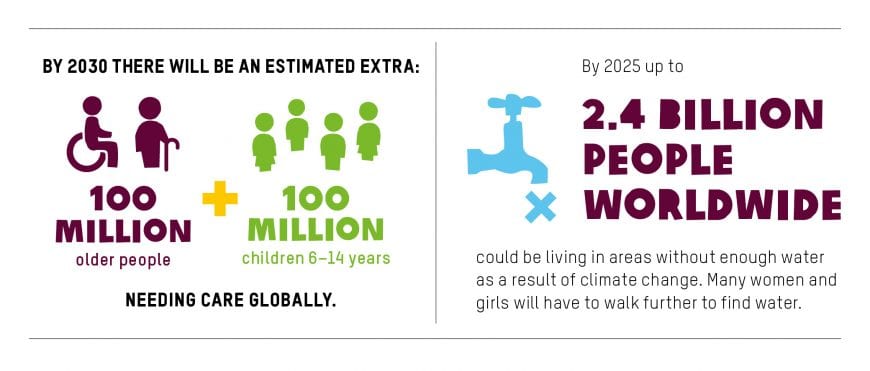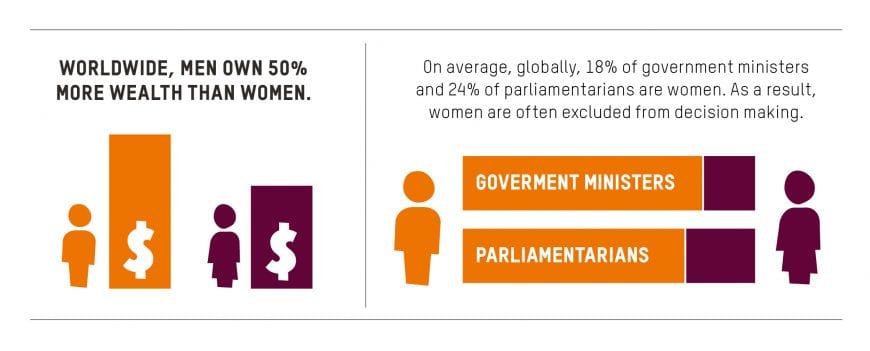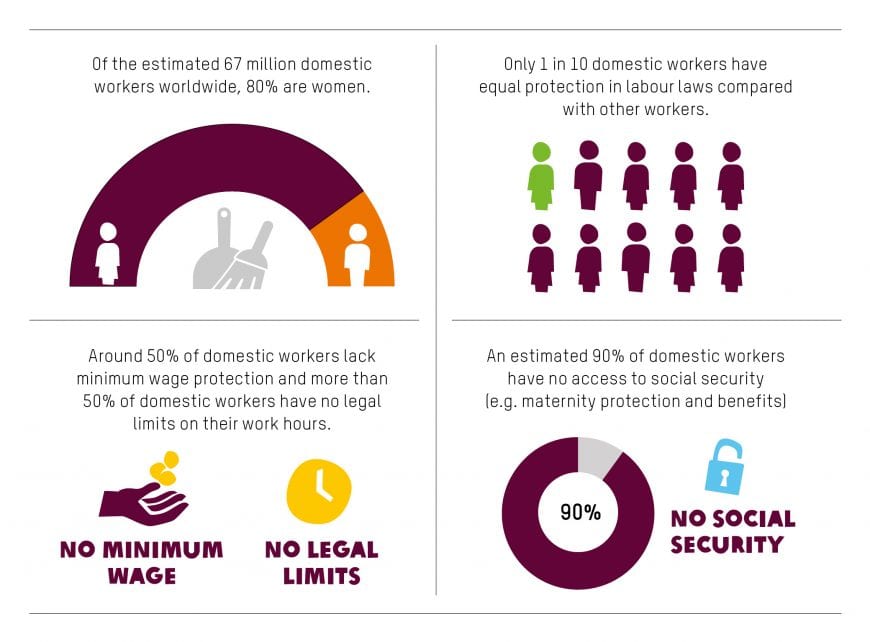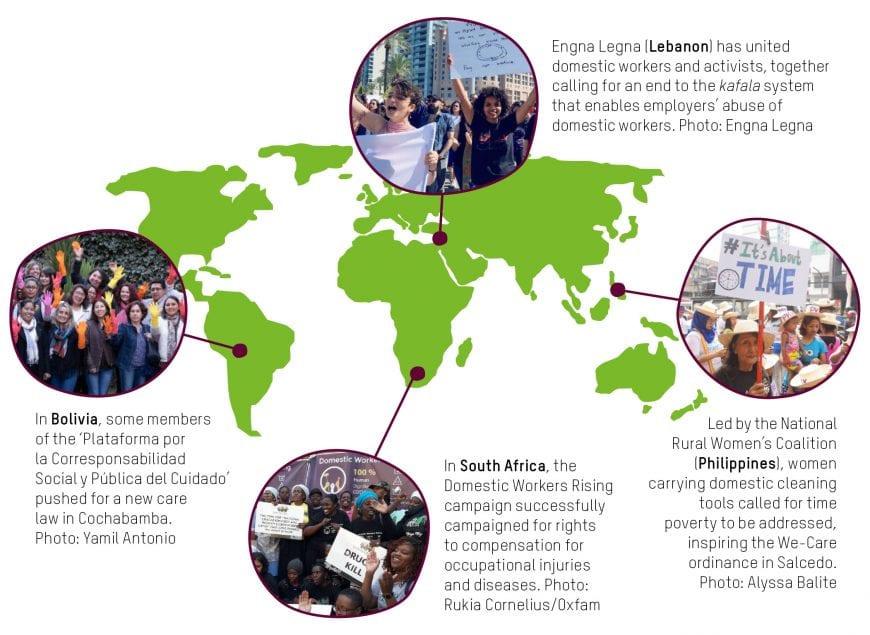
Let’s make 2020 the year we reset our economies to care for each other, not billionaires’ fortunes.
Click here to tell New Zealand’s political leaders that it’s time to build a caring economy by taxing wealth properly, and ask what they are going to do about it in the election.
We all want to live in a world that values and acknowledges what we do and who we are.
But right now the economy is enriching and protecting the vast fortunes of a privileged few, while billions of people struggle to stay afloat. Oxfam’s new report ‘Time To Care‘ reveals that women around the world are working 12.5 billion hours a day to cook, clean, care and do so much more, for poverty wages or nothing at all. Meanwhile the richest 22 men in the world own more wealth than all the women in Africa.

Unpaid care work
Women’s unpaid and poorly paid care work is the foundation for our economy – and our society. But this work is not recognised or valued. Meanwhile, a handful of people are amassing vast fortunes that they will never be able to make use of. This great divide exists because of the way we have designed our economies to value the wealth of the privileged few, mostly men, more than the billions of hours of the most essential work – the unpaid and underpaid care work done primarily by women and girls around the world. Tending to others, cooking, cleaning, fetching water and firewood are essential daily tasks for the wellbeing of family and whanau, communities, whole societies and the functioning of our economies.
Because this work is not recognised, supported or valued, it means that women and girls miss out on other opportunities. Of course, care work is an important part of showing love and care for other people in our families and communities, and we do this with love and care. But the vast amount of care work across the world is mundane, such as trekking hours a day to get safe water and firewood to cook with. Other care work, such as taking older relatives to health appointments, can interfere with paid employment. Across the world, 42 percent of women cannot get jobs because they are responsible for all the caregiving in a household, compared to just six percent of men.
Women also make-up two-thirds of the paid care workforce. Jobs such as nursery workers, domestic workers, and care assistants are often poorly paid, provide scant benefits, impose irregular hours, and can take a physical and emotional toll. In New Zealand, this is reflected in the fact that women have a higher in-work poverty rate in comparison to men. This inequality is at its highest when looking at couples with children: when the female is the main earner, these homes have an in-work poverty rate of 12.3 per cent, compared to 3 per cent if the male is the main earner.

How can we change this?
The good news is that we can fix this. We can recognise, support, redistribute and reduce the care work that women do. We can put the economy on the right track so that it values the right things – including the care work of millions of women and girls – instead of billionaires’ wealth.
One way of supporting, redistributing and reducing women’s unpaid and poorly paid care work is to provide free and accessible public services for all. People in our governments can make sure that women can get safe water close to their homes so they don’t have to spend hours walking for it. Governments can provide teacher aides and caregivers, paid at least a living wage, to support women who care for children with disabilities and people who are sick at home. Governments can invest in public transport and transport services to make travelling to and from schools, hospitals and childcare centres cheaper and easier for women. Policy actions like these will reduce the amount of unpaid care women and girls do, so that they can get an education, earn a decent living, and have a say in how our societies are run.

Of course, governments need to fund these services. This is where tax systems come in. The only way we can get the services that benefit all of us is through our collective contributions to these services, through taxes. At the moment, across the world, wealthy individuals, families and corporations are not properly taxed. We need to start taxing wealth properly, and change the international tax rules to stop corporates avoiding making their fair contribution in countries where they work. This revenue will provide people in government with much-needed resources to invest in supporting and valuing the care work that women and girls do.
The extreme inequality we witness today is not inevitable. It is the result of the choices we make about how we build economies and societies that are about human well-being, and that value what we truly value. Together, we can reset the economy to look after each other, not billionaires’ fortunes. Properly taxing wealth can help us do that, and build a world where all people flourish in a human economy.






